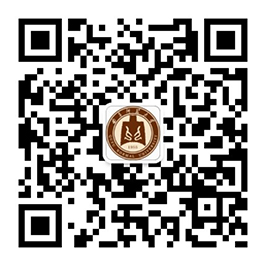The Network Information Center (NIC) of Qufu Normal University is a direct teaching subsidiary of the university. NIC is responsible for the campus-wide network security and information construction in both Qufu and Rizhao. It is an important supporting department for academic teaching, scientific research and discipline construction.
Altogether 15 staff members work for NIC and they are responsible for the following areas: the planning, construction and operation management of the campus backbone network; planning, construction and coordination of the university information system; planning, construction, operation, maintenance and development of the campus card system. NIC also works to guarantee campus network security, defends campus network from sensitive information and internet virus, gives assistance to university video conference, video signal transmission of important events and provides network training and technical support for the whole university. Besides, the following services are also provided by NIC: broadband access, office systems, e-mail account, domain name resolution, SMS platform, payment platform, smart campus, data platform, cloud computing, cloud storage, web site and network video conference for faculty and students. Antivirus and software legalization services provide technical support for the construction and operation of information systems such as comprehensive educational affairs, postgraduate teaching affairs, scientific research achievement management, personnel information management, student work, asset management, financial management, health management, and trade union proposal management. NIC consists of four divisions including the Information and Systems Management Office, the Network Operations Management Office, the Technology Research and Development Office, and the Campus Card Management Office. The duties of the four divisions are presented below.
The Information and Systems Management Division is responsible for the planning and construction of the campus network backbone network, the construction and operation management of university data centers, the construction and operation management of server systems and network information systems, virtual host construction and technical support, network information security and confidentiality, and emergency response to security incidents.
The Network Operation Management Division is responsible for the operation and management of the campus network backbone network, equipment operation and management of the university center computer room. Maintenance of network in both teaching and living areas of the two campuses, video communication and protection of network communications during major events, daily administration work, network knowledge promotion, network technology training and other events are also provided by it.
The Technology Research and Development Division is responsible for the technical development and operation management of the university network group, the website construction planning and management of the secondary units within the university, the opening of users of the network, authentication and billing management, the authentication and docking of the school business system, and data management. It provides assistance to supply-need analysis and design development of related application systems. It also guides, supervises, and inspects relevant research and development work.
The Campus Card Management Division is responsible for the planning, construction, operation, maintenance and function development of campus card systems. It provides maintenance for system front-end equipment, approval and technical support for third-party access to campus card systems, and management of campus card system data services. It is also responsible for the security, recharge business personnel management and work guidance, campus card merchant management, campus card system assets and financial management.
The Network Information Center focuses on the protection of the development of the university, and takes the responsibility of serving the faculty and students. It has made great contributions to the advancement of university network information construction and will continue to provide a solid support for the construction of the “double first-class” school.


















 鲁公网安备 37088102000140号
鲁公网安备 37088102000140号